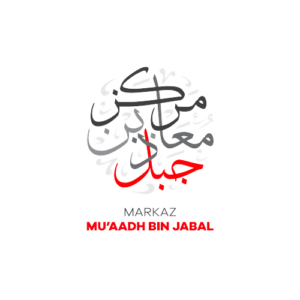Supplications and Remembrances
Imām Ibn al-Qayyim (d.751AH) (رحمه الله) said,
I asked Shaykhul Islām (Ibn Taymiyyah) regarding the meaning of the supplication of the Prophet ﷺ:
الّلهُمَّ طَهِّرْنِى مِنْ خطاياي بِالمَاءِ وَالثَّلْجِ وَالْبَرَدِ
“O Allāh cleanse me of my sins with water, snow, and hail.”
[Al-Bukhārī no.744 & Muslim no.598]
How are sins purified and cleansed with that? And what is the benefit in them (i.e. water, snow and hail) being specified? And isn’t hot water more effective in cleansing?
Shaykhul Islām answered,
Sins cause heat to the heart, impurities and weakness, thereby reducing the (strength) of the heart. And they ignite the fire of (forbidden) lusts in it and pollute it.
Indeed sins and disobedience are to the heart like the wood which ignites the fire and kindles it. That is why whenever sins are plentiful, the fire of the heart becomes more severe and its weakness greater. And water cleans the filth and extinguishes the fire, so if it (the water) is cold it will cause the body to be firm and strong. And if alongside it there is snow and hail then it will have a stronger cooling effect and will make the body firmer and stronger, and that will be more effective in wiping out the effects of sins.
[Ighāthatul-Lahfān fee Masāyid ash-Shaytān, vol.1, pg.96, Dār ‘Aalam al-Fawāid print, 2nd edition]
Thawbān (رضي الله عنه) narrates that when Allāh’s Messenger (صلى الله عليه وسلم) finished his Prayer he would seek forgiveness three times and say,
اللَّهمَّ أنتَ السَّلامُ ومنكَ السَّلامُ ، تَباركتَ يا ذا الجلالِ والإكرامِ
“O Allāh, You are The Flawless One and from You comes peace and security. Blessed are You, O Possessor of Majesty and Honour.” [Saheeh Muslim no.59]
Al-‘Allāmah Muhammad bin Sālih al-‘Uthaymeen رحمه الله mentioned,
O Allāh, You are Salām (The Flawless One, free from all imperfections), meaning, I ask You O Allāh, seeking nearness to You by this noble Name from Your Names, to keep my Prayer free from defects, so that it is an expiation for my sins and a raising of levels.
[Sharh Riyādus-Saaliheen, vol.5, pg.491, Dār al-Watan print, 3rd edition]
Allāh’s Messenger (صلى الله عليه وسلم) said,
“Three (categories) of people whose du’ā is not rejected by Allāh,
- One who remembers Allāh much
- The oppressed
- And the just ruler”
[Al-Bayhaqī in Sh’uab al-Eemān, Silsilah al-Ahadeeth as-Saheehah no.1211]
Allāh’s Messenger صلى الله عليه وسلم used to supplicate,
وَلاَ تَجْعَلْ مُصِيبَتَنَا فِي دِينِنَا
“And do not make our affliction in our religion.” [At-Tirmidhī no.3502]
Al-‘Allāmah Muhammad ‘Abdus Salām al-Mubārakfūree (d.1414AH) رحمه الله said in his explanation of the above du’ā.
Meaning, do not afflict us with that which will cause a decrease in our religion from evil and false beliefs, from consuming harām (unlawful earnings) and from losing interest and enthusiasm in acts of worship, and other than that.
[Mir’āt al-Mafāteeh sharh Mishkāt al-Masābeeh, vol.10, pg.252, Madārul-Qabas print, 1st edition]
Allāh’s Messenger صلى الله عليه وسلم used to supplicate,
وَلاَ تُسَلِّطْ عَلَيْنَا مَنْ لاَ يَرْحَمُنَا
“…And do not empower those who will not have mercy upon us.”
[At-Tirmidhī no.3502]
Al-‘Allāmah Muhammad ‘Abdus Salām al-Mubārakfūree (d.1414AH) رحمه الله said in his explanation of the above du’ā.
Meaning, do not let us be overcome by the Kuffār and oppressors, or do not place in authority over us oppressive rulers, for the oppressor is not merciful to his subjects.
It has also been said that the meaning is the angels of punishment in the grave and the Hell-Fire.
[Mir’āt al-Mafāteeh sharh Mishkāt al-Masābeeh, vol.10, pg.252, Madārul-Qabas print, 1st edition]
Allāh سبحانه وتعالى says,
وَلَمْ أَكُنْ بِدُعَائِكَ رَبِّ شَقِيًّا
“(Zakarīyā عليه السلام said) And I have never been unblessed in my invocation to you, O my Lord!” [Qur’ān 19:4]
Imām ‘Abdur Rahmān As-S’adi رحمه الله said regarding this verse.
Meaning, you would never send me back (O Allāh) empty handed and denied from the answer (to my invocation), rather You would always be Most Gracious to me, answering my invocations. Your kind favours never ceased coming to me and Your goodness never ceased reaching me. And this is Tawassul to Allāh (seeking nearness to Him) by mentioning His blessings upon him and His answer to his past invocations. So he asked the One Who blessed him in the past, to keep blessing him in the future.
[Tayseer al-Kareem ar-Rahmān fee tafseer kalaam al-Mannān, vol.3, pg.989, Dār ibn al-Jawzee print, 5th edition]
The noble Companion ‘Utbah bin Ghazwān رضي الله عنه used to supplicate,
وَإِنِّي أَعُوذُ بِالله أَنْ أَكُونَ فِي نَفْسِي عَظِيمًا وَعِنْدَ الله صَغِيرًا
“And verily, I seek refuge with Allāh that I consider myself to be great but insignificant in the sight of Allāh.”
[Sahīh Muslim no.2967, Kitāb Az-Zuhd war-Raqāiq]
Shaykh Muhammad Ādam al-Ethiopee رحمه الله mentioned in his explanation of the above narration,
((that I consider myself to be great))
“Meaning, I consider myself to be of a lofty status.
((but insignificant in the sight of Allāh))
With Allāh I am considered ignoble and of lowly status due to a lack of piety and righteous deeds.”
[Al-Bahr al-Muheet Ath-Thajjāj fee sharh saheeh al-Imām Muslim ibn Hajjāj, vol.45, pg.109, Dār ibn al-Jawzee print, 1st edition]
Shaykh al-Islām Ibn Taymiyyah (رحمه الله) said:
“When the servant finds shortcoming in fulfilling the rights of relatives, family, children, neighbours and brothers (in faith), theen he should make duʿā for them and seek forgiveness for them.”
[Majmūʿ al-Fatāwā (11/698)]
Translated by Abu Iyaad Amjad Rafiq
رَبِّ هَبۡ لِى مِنَ ٱلصَّـٰلِحِين
“My Lord, grant me righteous offspring.” [Sūrah As-Sāffaat, verse 100]
Imām At-Tabaree رحمه الله said regarding the above verse,
“This is Ibrāheem asking his Lord that He grants him righteous offspring, saying O my Lord grant me from Yourself a child who will be from the righteous, who will obey You and not disobey You and will cause rectification upon the earth and not cause corruption.”
[Tafseer at-Tabaree, vol.12, pg.94, Dār ibn Hazm print, 1st edition]
رَبَّنَا اغْفِرْ لِي وَلِوَالِدَيَّ وَلِلْمُؤْمِنِينَ يَوْمَ يَقُومُ الْحِسَابُ
“Our Lord, forgive me, my parents, and (all) the believers on the Day when the reckoning will take place.”
[Qur’ān 14:41]
رَبِّ اجْعَلْنِي مُقِيمَ الصَّلَاةِ وَمِن ذُرِّيَّتِي رَبَّنَا وَتَقَبَّلْ دُعَاءِ
“My Lord, make me one who establishes the Prayer, and also from my offspring, our Lord, and accept my supplication.”
[Qur’ān 14:40]
Shahr ibn Hawshab narrates,
“I asked Umm Salamah (the wife of the Prophet صلى الله عليه وسلم):
“O mother of the believers, what supplication would the Prophet صلى الله عليه وسلم make the most when he was with you?”
She replied,
“The most frequent supplication he would make was:
يَا مُقَلِّبَ القُلُوبِ ثَبِّتْ قَلْبِي عَلَى دِينِكَ
“O changer of the hearts, make my heart firm upon Your religion.””
[At-Tirmidhī, Ibn Abee Shaybah in Al-Eemān, Ahmad, Silsilah al-Ahadeeth as-Saheehah no.2091]
رَبَّنَا لَا تُزِغْ قُلُوبَنَا بَعْدَ إِذْ هَدَيْتَنَا وَهَبْ لَنَا مِن لَّدُنكَ رَحْمَةً ۚ إِنَّكَ أَنتَ الْوَهَّابُ
“Our Lord, do not let our hearts deviate after You have guided us, and bestow upon us mercy from Yourself. Indeed You are the Bestower.”
[Qur’ān: 3:8]
Imām ‘Abdur Rahmān As-S’adee (رحمه الله) mentioned,
“Remembrance of Allāh after the obligatory Prayer has many wisdoms. From them, as ‘Ā’ishah (رضي الله عنها) said, “it is like wiping a mirror after polishing it.”
Meaning the Prayer is a means of polishing the heart and the remembrance of Allāh after is a wiping for the heart, so that it is fully cleaned.
And the remembrance of Allāh is a distinguishing characterstic of the (obligatory) Prayer and a sign of its completion. It is a sign that the Prayer has been accepted, because from the signs that an act of worship has been accepted is to carry out another act of worship after it.”
[At-T’aleeqāt ‘alā ‘Umdatil-Ahkām pgs.125-126, found in his Majmoo’ Mualafāt, vol.4, Dār al-Maiman print 2nd edition]
For authentic remembrances after the obligatory Prayer see below link:
https://www.abukhadeejah.com/supplications-and-dhikr-after-the-prayer-takbir-tasbeeh/
‘Abdullāh ibn ‘Abbās (رضي الله عنهما) mentioned,
“Alhamdulillāh (all praise is for Allāh) is the statement of every grateful person.”
[Tafseer al-Qurtubī, vol.1, pg.206, Resalah Publishers, 1st edition]
‘Alī ibn Abī Taalib (رضي الله عنه) mentioned,
“I do not see any person of intellect whom Islām has reached sleeping until he recites Āyataul-Kursī and the last (two) verses of Sūrah al-Baqarah, for they are from the treasures under the Throne (of Allāh).”
[Tafseer ibn Katheer, vol.2, pg.305, Dār ibn al-Jawzee, 2nd edition, Al-Adhkār pg.201, Dār ibn al-Jawzee, 1st edition]
Allāh’s Messenger (صلى الله عليه وسلم),
…”Indeed, Shaytān flees from a home in which Sūrah al-Baqarah is recited.”
[Saheeh Muslim, hadeeth no.780]
Hāfiz an-Nawawī (رحمه الله) mentioned,
“And the meaning is that he loses hope and despairs from misguiding people of the home (in which Sūrah al-Baqarah is recited) due to the blessing of this Surāh, or due to him seeing their striving and determination in practicing the religion and diligence in seeking certainty.”
Al-Baydāwī (رحمه الله) mentioned,
“Shaytān loses hope and despairs from misguiding and enticing them (those in whose home Sūrah al-Baqarah is recited), due to what he sees of their seriousness and striving in the religion and them remaining firm upon Islām.”
[Al-Bahr al-Muheet ath-Thajāj sharh Saheeh al-Imām Muslim ibn Hajjāj, vol.16, pg.161, Dār ibn al-Jawzee print, 1st edition]

